Iranian Artists Slam Sham Trial For Famous Actress
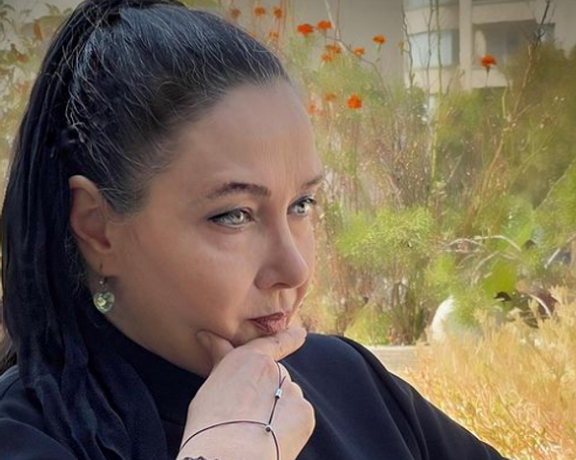
Iranian Independent Filmmakers Association says the regime has held a sham trial for actress Katayoun Riahi, arrested in November, to obtain a forced confession.

Iranian Independent Filmmakers Association says the regime has held a sham trial for actress Katayoun Riahi, arrested in November, to obtain a forced confession.
Riahi’s trial session, a popular Iranian actress who had earlier removed her mandatory hijab to express solidarity with the anti-regime demonstrations, was held on Wednesday.
During the trial and being filmed she was pressured to confess to political crimes and apologize. Riahi, unable to bear the relentless psychological torment, passed out and was taken to hospital by ambulance.
The court session, which was held abruptly with a change of date and in front of several cameras, met with widespread criticism.
Adeleh Cheraghi, the spokesperson of the association, said that Katayoun Riahi was asked to apologize and express regret to the authorities of the Islamic Republic for removing the mandatory hijab, in the presence of the state media reporters, possibly to broadcast later. According to Cheraghi, she refused to do so.
Movie star, Hamid Farrokhnejad also slammed the move to obtain coerced confessions from the actress.
"You imagine a video of someone, who apologized to you under threats, is a proof of your righteousness! How miserable you are!” he wrote on his Instagram addressing the government.
"People have decided that you must go, and you will. This way you just make yourself more pathetic," he added.
Security agents also confiscated a large part of her belongings, including her laptop in October when she was not home.
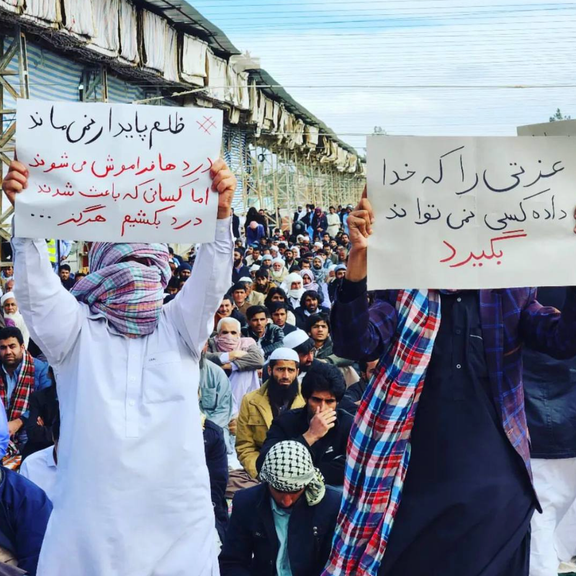
Human Rights Watch says Iran’s regime has used excessive and lethal force in the clampdown on nationwide protests that broke out in September 2022.
In its World Report 2023 published Thursday, Human Rights Watch said Iranian authorities have detained hundreds of activists on “dubious charges” and issued death sentences in “grossly unfair trials”.
The acting executive director of Human Rights Watch (HRW) Tirana Hassan announced in the report that the protests against the mandatory use of the hijab are just the most visible symbol of repression.
"The demand for equality triggered by women and schoolgirls has morphed into a nationwide movement by the Iranian people against a government that has systematically denied them their rights, mismanaged the economy, and driven people into poverty," she underlined.
The 712-page report looks at the state of human rights in about 100 countries where the organization works.
The death of Mahsa Amini in the custody of the morality police in mid-September sparked nationwide demonstrations, including in schools and universities.
Human Rights Watch says security forces have used shotguns, assault rifles, and handguns against protesters.
“With mass repression, unfree elections, and apparent corruption and mismanagement, Iran’s autocracy rules with all that remains: brute force,” said Tara Sepehri Far, senior Iran researcher at Human Rights Watch.
“Other countries, including from the Global South, should increase pressure on these brutal authorities and ensure there is accountability for their crimes,” she added.
Over 500 people have been killed by the regime forces since the beginning of protests.
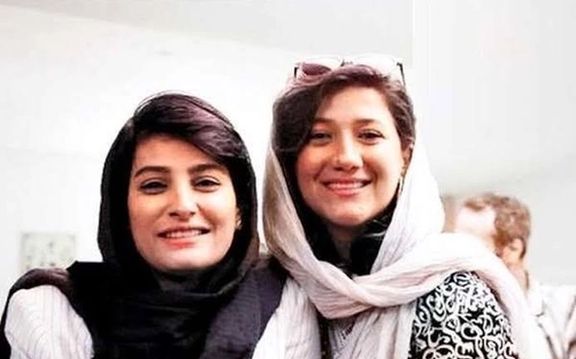
Union of Journalists in Iran has published the names of 28 reporters, who have been arrested during the nationwide anti-regime protests, saying that they are still in detention.
According to the report by a committee that follows up on the situation of the detainees, about 70 journalists had been arrested with some of them freed on bail.
The names of Niloofar Hamedi and Elaheh Mohammadi could also be seen in the list. They were arrested by the Iranian regime for reporting the death of Mahsa Amini who was killed in the custody of the hijab or ‘morality police’ in September.
The committee also announced that in addition to these arrests, a significant number of journalists have also been "summoned".
Since the uprising against clerical rulers, pressure has increased on the media, with detained journalists facing false accusations.
Some of these journalists have received heavy sentences, including Ehsan Pirbornabash who was sentenced to 18 years in prison for his satirical tweets.
There are no exact figures on the number of people arrested during the protests, but some sources say nearly 20,000 people have been detained, while the government released some of them with heavy bonds and forced confessions.
Iran is reportedly the third largest jailer of journalists in the world, after China and Myanmar.
The Islamic Republic has long held one of the world’s worst press freedom rankings, at 178th out of 180 countries.
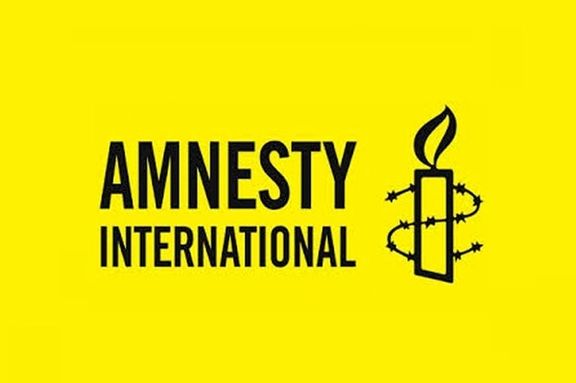
Amnesty International has urged the Iranian regime to immediately stop all executions of people sentenced to death in relation to nationwide protests.
In a statement on Wednesday Amnesty censured the arbitrary executions of Mohammad Mehdi Karami and Seyed Mohammad Hosseini on January 7 and called on the Islamic Republic to halt issuing death penalty for demonstrators.
The international body also warned that another protester, Mohammad Ghobadlou and several others risk the same fate.
On January 2, Iran’s supreme court upheld the death sentence of Mohammad Ghobadlou, 22, in connection with the ongoing protests.
In the past week, Iranian courts also issued five more protest-related death sentences to detainees after sham trials.
“It is abhorrent that the Iranian authorities persist in their state-sanctioned killing spree as they desperately seek to end the protests and cling to power by instilling fear among the public,” said Diana Eltahawy, Amnesty International’s Deputy Director for the Middle East and North Africa.
“The arbitrary executions of Mohammad Mehdi Karami and Seyed Mohammad Hosseini, just days after their death sentences were upheld, reveal how the Iranian authorities continue to wield the death penalty as a weapon of repression, and serve as a chilling reminder that scores of others remain at risk of execution,” she added.
Iran’s judiciary has so far executed four young protestors after holding trials that according to human rights activists were unfair and without due process.
According to Norway-based Iran Human Right Organization at least 109 protesters are in danger of receiving death penalty or being executed.
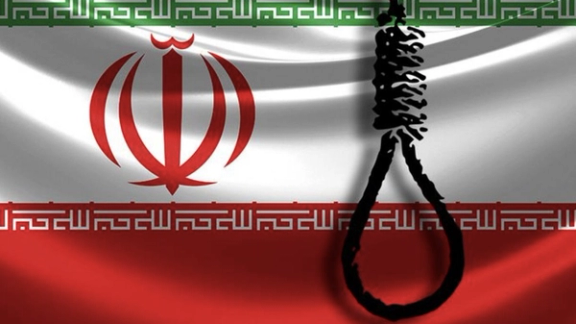
Protests in Iran continue online and via political graffiti as the Islamic Republic is issuing death sentences, long prison terms and floggings to quash voices of dissent.
According to reports, some of the protesters who were injured during the regime’s crackdown refrain from going to hospitals in fear of arrest, leading to deaths in some cases.
The council of the country's student unions cited reports Tuesday that Ghazal Amiri, a student at Shiraz University, was beaten by security forces during the protests on September 10, but was not taken to hospital. The following day, her condition worsened, and she died after finally being transferred to the hospital.
There are many similar deaths that are not revealed to the media because their families are under pressure by intelligence agents. Iran International also obtained information about a young woman who fell to her death from the fourth-floor window of her home when security forces came looking for her.
In addition to over 500 protesters who have been killed during nearly four months of unrest, more than a dozen detainees have been sentenced to death. The Islamic Republic has already executed four people over their participation in demonstrations.
Security forces and the hardliner Judiciary have claimed that many of the dead protesters committed suicide or had medical preconditions.
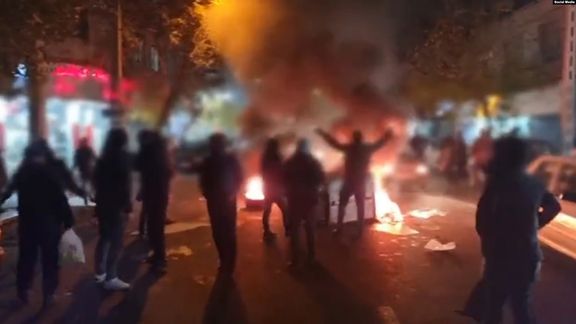
Meanwhile, there are several reports about the deteriorating health conditions of the detained protesters. According to reports obtained by Iran International, the teeth of Saleh Mirhashmi, a protester sentenced to death, were broken and his eardrum was also ruptured under torture in prison. Mirhashmi has recently married, and his mother is under immense psychological pressure due to her son's condition.
The number of protesters who are given death sentences in the regime’s courts is also increasing. Ebrahim Naroui, who was arrested during protests in the southeastern city of Zahedan, was sentenced to death by the Sixth Branch of the Revolutionary Court of the city on the charge of "Moharebeh". Three more Iranians arrested during antigovernment protests in the northern city of Nowshahr were sentenced to death on Tuesday. Iran's judiciary said Monday that a court has sentenced three more protesters to death for “war against God”.
Political activist Heshmatollah Tabarzadi, who already served several years in the regime’s prisons, was also sentenced to “corruption on earth,” a sentence punishable by death. He was arrested on September 20.
The judiciary’s branch in Kordestan province also announced Tuesday that Pouria Javaheri is also facing a death sentence for “Moharebeh.” He was arrested in the city of Kamyaran during protests late in November.
“Moharebeh” and "corruption on earth" are vague Islamic-Arabic Sharia concepts that in the lexicon of the Iranian regime means a death sentence. The Islamic Republic considers many acts of opposition or defiance against the regime as “Moharebeh” and "corruption on earth", with the maximum punishment of death.
Clerical judges who take orders from the hardliner Judiciary convict people to death without a real trial, often with no defense lawyers and behind closed doors. The defendants have no way of challenging state evidence or introducing witnesses.
According to the Norway-based Iran Human Rights Organization, at least 109 Iranian protesters are currently at risk of execution or facing death sentences, but the number seems to be much higher with new cases revealed almost every day. The rights organization also stressed that repression through arbitrary arrests, physical torture, sexual assault and rape in detention and the mass issuance of sentences has been intensified.
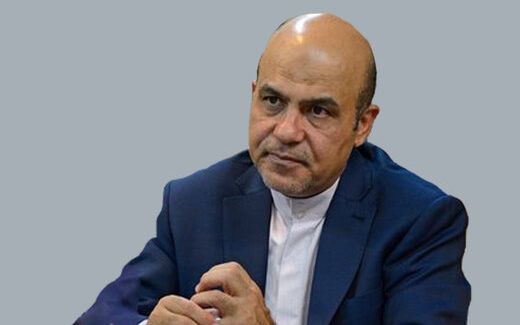
A former Iranian defense ministry official, who holds dual Iranian-British citizenship, has been sentenced to death on charges of spying for the UK.
Iranian state media reported Wednesday that Alireza Akbari has been sentenced to death for allegedly spying for MI6.
In a statement published by Iran's Intelligence Ministry, Akbari was described as "one of the most important infiltrators of the country's sensitive and strategic centers".
He was detained more than three years ago and has been in the notorious Evin prison in Tehran since then.
Akbari had been deputy defense minister under the reformist President Mohammad Khatami, from 1997 to 2005. He was also close to Ali Shamkhani, the secretary of the Supreme National Security Council of Iran.
He was an advocate for the Iran nuclear deal known as the JCPOA that was eventually signed in 2015 with world powers.
Britain's Foreign Office has urged the Islamic Republic to immediately release the dual national.
However, Akbari's wife Maryam said an official asked her to visit her husband in jail for a 'final meeting' before his execution.
Reports say he has been moved to solitary confinement, indicating that his execution is imminent.
However, no details have provided about his specific charges and court proceedings.
"Our priority is securing his immediate release and we have reiterated our request for urgent consular access," a UK Foreign Office spokesperson said.
Nournews, which is affiliated to the country's top security agency reported that Akbari's death sentence has been upheld by Iran's Supreme Court.